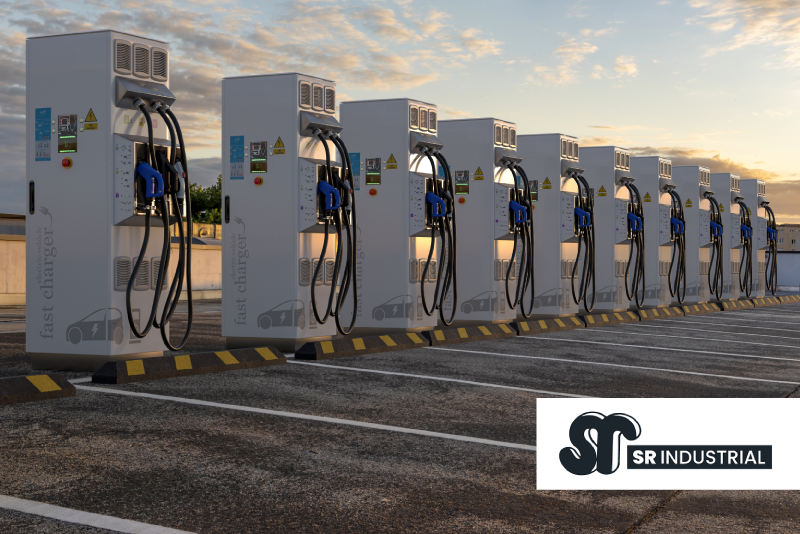Embracing Sustainability: EV Charger Installation for Commercial Properties

As the world continues to prioritise sustainability and environmental responsibility, businesses are actively seeking ways to reduce their carbon footprint. One sector that plays a pivotal role in promoting eco-friendly practices is commercial heating and cooling. With an increasing focus on sustainability, incorporating electric vehicle (EV) charger installations for commercial properties has emerged as a practical and eco-conscious solution. In this article, we will explore the benefits of embracing sustainability through EV charger installation, and how it can positively impact both businesses and the environment.
The Growing Importance of Sustainability in Commercial Properties
In recent years, sustainability has become a key aspect of corporate social responsibility, driving companies to adopt greener practices. As consumers and investors demand more environmentally-friendly initiatives, businesses are recognising the need to reduce their environmental impact. Commercial properties, being significant energy consumers, have a unique opportunity to embrace sustainability by integrating renewable energy sources and supporting the adoption of electric vehicles.
Understanding the Role of EV Chargers in Sustainability
Electric vehicles have gained popularity due to their eco-friendly attributes, lower emissions, and cost-effective long-term benefits. By installing EV chargers on commercial properties, businesses can actively promote the adoption of electric vehicles among employees, visitors, and customers. This, in turn, contributes to reducing greenhouse gas emissions, decreasing dependence on fossil fuels, and improving local air quality.
Benefits of EV Charger Installation for Commercial Properties
Enhancing Corporate Social Responsibility (CSR )- Investing in EV charger installations demonstrates a company’s commitment to environmental responsibility and sustainability. It strengthens the company’s CSR profile, fostering positive relationships with stakeholders, customers, and the local community.
Attracting Eco-Conscious Customers and Employees
With an increasing number of environmentally-conscious consumers and job-seekers, businesses that prioritise sustainability are more likely to attract a larger customer base and a highly skilled workforce. EV chargers on commercial properties send a strong message about a company’s dedication to eco-friendly practices, making it an attractive option for green-minded individuals.
Financial Incentives and Tax Credits
Governments and local authorities often provide financial incentives and tax credits to businesses that invest in sustainable infrastructure, such as EV chargers.
These incentives can significantly offset the installation costs, making it a financially viable and rewarding decision for businesses.
Potential Revenue Generation
Commercial properties with EV chargers can offer charging services to EV owners, creating an additional revenue stream. By collaborating with charging network providers, businesses can attract more customers to their premises, increasing footfall and enhancing the overall customer experience.
Addressing Challenges and Solutions
Initial Investment Costs
While EV charger installation can lead to long-term savings, the initial investment cost can be a concern for some businesses. However, various government grants and financial programs are available to help mitigate these costs, making it easier for businesses to adopt this sustainable initiative.
Charging Infrastructure Management
Managing charging infrastructure can be challenging for businesses, especially when dealing with multiple chargers and users. Implementing user-friendly software and partnering with reliable charging network operators can streamline the process and ensure smooth operations.
Energy Demand and Grid Capacity
The increased energy demand from EV chargers might strain the existing grid capacity in some locations. To address this, businesses can consider implementing smart charging solutions that distribute energy consumption more efficiently and avoid peak-load times.
Best Practices for EV Charger Installation
Conducting a Site Assessment
Before installing EV chargers, businesses should conduct a thorough site assessment to determine the optimal charger placement, electrical requirements, and potential energy demand.
Choosing the Right EV Chargers
Selecting high-quality and compatible EV chargers that suit the property’s needs and the target audience is crucial for a successful installation.
Offering Diverse Charging Options
Providing a mix of fast and slow chargers accommodates various EV models and ensures an inclusive and convenient charging experience for all users.
Integrating Renewable Energy Sources
Supplementing EV charging infrastructure with solar panels or other renewable energy sources further enhances sustainability and reduces overall carbon emissions.


